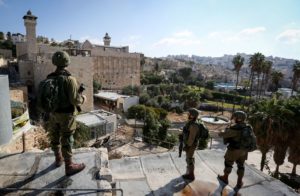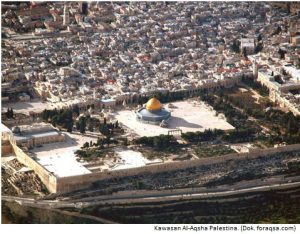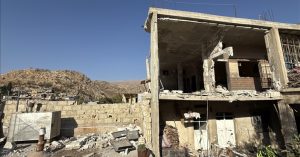By: Imaam Yakhsyallah Mansur
بِسْمِ اللّٰهِ الرَّحْمٰنِ الرَّحِيْمِ
The Word of Allah Subhanahu wa Ta’ala:
(وَالۡفَجۡرِۙ – وَلَيَالٍ عَشۡرٍۙ – وَّالشَّفۡعِ وَالۡوَتۡرِۙ (آلفجر١- ٣
Also Read: Verses of the Universe in Gaza: The Unyielding Light of Faith
It means: “For the sake of the dawn and the nights of ten, and even and odd.” (Surah al-Fajr [89]: 1-3)
This Surah is named after Al-Fajr, without “Wau”, different from the sound of the first verse. This naming was agreed upon by the scholars and there is no other name for this surah except only the name. This surah is the 10th revelation, coming down before the Surah Ad-Dhuha and after the Surah Al-Fiil.
This surah begins with the oath of Allah Subhanahu wa Ta’ala with the dawn. The word dawn comes from Arabic which means according to Al-Asyfihani in the Gharibul Quran is:
شَقُّ الشَّيْءِ شَقًاوَاسِعاً
Also Read: Prophet Sulaiman Alaihi Salam, the Greatest Muslim King of All Time
Meaning: “Splitting something with a wide cleavage.”
The meaning of dawn is generally understood by the time when the sun’s light begins to linger in the eastern horizon, about one hour before the sun rises.
It is at this time that Muslims are obliged to perform the Fajr Prayer and the dawn time runs out when the sun has risen.
In this first verse, Allah Subhanahu wa Ta’ala swears by dawn to remind people how important that time is. Dawn is the time of human resurrection from a small death, namely sleep. With the spread of light from then on, humans can work to fulfill the necessities of life by seeking fortune in the earth of God who created this dawn.
Also Read: Imaam Yakhsyallah Mansur: Surah At-Tin Indicates the Command to Liberate Al-Aqsa
Allah reminded that the new day that starts from the dawn is filled with worship and good deeds. Do not let the day pass without meaning or be filled with acts that harm yourself and others.
Because all human actions will be accounted for by Allah Subhanahu wa Ta’ala which results in reward and torture so as to take someone to heaven or hell.
Some other scholars believe that what is meant by dawn in this verse is the time of the Feast of the Sacrifice or the dawn of the beginning of Dhu al-Hijjah because afterwards it is called the nights of ten, which is ten nights or ten days of Dhu al-Hijjah, as the jumhur mufassirin opinion when they interpret the second verse, “And ten nights.” According to Ibn Kathir, this is the right opinion.
Ibn Kathir when interpreting this verse take marfu hadith ‘from Ibn Abbas:
Also Read: Imaam Yakhsyallah: Nurture Love for the Prophet, One Will Be with Whom One Loves
مَا مِنْ أَيَّامٍ الْعَمَلُ الصَّالِحُ فِيهَا أَحَبُّ إِلَى اللَّهِ مِنْ هَذِهِ الأَيَّامِ. يَعْنِى أَيَّامَ الْعَشْرِ. قالوا يا رسول الله ولا الجهاد فى سبيل الله قال: ولا الجهاد فى سبيل الله إلا رجل خرج بنفسه وماله فلم يرجع من ذلك بشىء. (رواه البخارى
It means: “There are no days of giving good deeds that are more beloved by Allah than these days, which are ten days in the month of Dhu al-Hijjah.
The Companions said, “Isn’t jihad in the way of Allah?” The Prophet replied: “Nor is jihad in the way of Allah, except for someone who comes out of his house with his soul and wealth (for jihad) then he does not return from him (shaheed)”. (Narrated by Al-Bukhari).
In the hadith narrated by Ahmad from Ibn Umar, the Prophet sallallaahu alayhi wa salam said:
Also Read: Friday Sermon: Emulating the Firmness of the Prophet in Struggle
ما من أيام أعظم عند الله سبحانه وتعالى ولا أحب إليه العمل فيهن من هذه الأيام العشر, فأكثروا فيهن من التهليل والتكبير والتحميد
It means: “There is no day that is the most glorious and the most beloved of Allah to do good in it than the ten (first) days of this Dhu al-Hijjah. Then multiply at that time tahlil, tahmid and takbir “.
As for the words “even and odd”, some scholars understand that they still have a correlation (correlation) with the previous verse, so they understand that “the odd” is the 9th of Dhulhijjah (Arafat Day) and “the even” is Eid al-Adha because 10 Dhu al-Hijjah.
There is also a general understanding so that “the even ones” are all creatures created by Allah Subhanahu wa Ta’ala in pairs as he says:
Also Read: Imaam Yakhsyallah: Muslims Unity as Key to Victory of Islam
(ٱلَّذِى (ٱلَّذِى خَلَقَ ٱلْأَزْوَٰجَ كُلَّهَا مِمَّا تُنۢبِتُ ٱلْأَرْضُ وَمِنْ أَنفُسِهِمْ وَمِمَّا لَا يَعْلَمُونَ (يَس : ٣٦)
It means: “The Most Holy God who has created creatures is all paired up; the same is from what the earth has grown, or from themselves, or from what they do not know. ” (Surah Yaasiin [36]: 36)
From the description above it can be understood that the charity which was carried out during the first ten days in Dhul-Hijjah had several virtues. Some scholars say that the practice on every day at the beginning of the month of Dhu al-Hijjah is the same as the one-year practice. Some even say the same as 1,000 days, while the practice on the day of Arafat is equal to 10,000 days.
These virtues are all based on the history of the ahad (weak) traditions. But according to the hadith experts allow practicing fadha’il (main) charity based on the hadith da’eef as long as it is not too deep. Especially, if the narration is supported by authentic narrations, such as the hadith of Al-Bukhari from Ibn Abbas above. Mujahid, a leader of the ulama tabi’in said: “Practices in the first ten days of Dhu al-Hijjah will double the reward.”
Also Read: Friday Sermon: Prophet Muhammad Is Not a Political Figure
Main Practices at the Beginning of Dhu al-Hijjah
1. Carry out Hajj and Umrah
The Prophet sallallaahu alayhi wa salam said:
(العمرة إلى العمرة كفارة لما بينهما, والحج المبرور ليس له جزاء إلا الجنة (متفق علئه
Also Read: Without Knowledge, Congregation Is Merely a Crowd Without Direction
It means: “Umrah one to another Umrah is the penance between the two, and the hajj which is ragur has no merit for him other than Heaven.” (Muttafaq alaih).
According to Hasan Al-Basri, hajj Mabrur is that if a person who returns from the hajj pilgrimage, he is more zuhud (not greedy) towards the world and increasingly in love with the afterlife.
Majiur hajj will be obtained when people who do hajj sincerely and follow the way (sunnah) of the Prophet sallallaahu alayhi wa salam.
2. Fast
Also Read: Friday Sermon: Grateful for Indonesia’s Independence by Supporting Palestine’s Freedom
Some of the wives of the Prophet sallallaahu alayhi wa salam said:
(كَانَ رَسُولُ اللَّهِ -صلى الله عليه وسلم- يَصُومُ تِسْعَ ذِى الْحِجَّةِ وَيَوْمَ عَاشُورَاءَ وولاة َ دردََََََََُّّ ٍٍَََََََََََََََََََََََََََََََََّّّّّّّّّّّّّّّّّّّّّّّّّ
Meaning: “The Messenger of Allah used to fast on the first nine days of the month of Dhul-Hijjah, on the day of As-Shura (10 Muharram) and three days each month.” (Narrated by Abu Daud). According to Nashiruddin Al-Bani, this hadith is authentic.
Among friends who practiced fasting for the first nine days of the month of Dhul-Hijjah was Abdullah bin Umar. Other scholars such as Hasan Al-Basri, Ibn Sirin and Qatadah also mentioned the virtue of fasting in those days.
Also Read: The Bestial Nature of Netanyahu
3. Fasting on the Day of Arafat
The Prophet sallallaahu alayhi wa salam said:
(صَوْمُ يَوْمِ عَرَفَةَ يُكَفِّرَ سَّنَّتَيْنِ مَاضِيَةً وَمُسْتَقْبِلَةً (رواه مسلم
It means: “Fasting the day of Arafah takes away the sins of two years, the past year and the year to come.” (HR. Muslim).
Arafat Day is the ninth day of the month of Dhul-Hijjah. Named the day of Arafat because on that day the people who perform the pilgrimage perform wukuf at Arafat.
Arafat fasting is only prescribed to those who do not perform the Hajj (not to those who make Hajj).
Ahmad’s narration from Abu Hurairah said:
نَهَى النَّبِيَ صَلَّى اللهُ عَلَيْهِ وَسَلَّمَ عَنِ الصَّوْمِ يَوْمِ عَرَفَةَ بِعَرَفَاتٍ
Meaning: “The Messenger of Allah forbade the fasting of Arafat to those who were in the field of Arafat (to have a character).”
4. Sacrifice
The Word of Allah Subhanahu wa taala:
فَصَلِّ لِرَبِّكَ وَانْحَرْ (الكوثر: ٢
It means: “Then establish prayer because of your Lord; and sacrifice. ” (Surah Al-Kautsar [108]: 2)
Some scholars understand that the command to sacrifice here is the qurban on the feast of Eid al-Adha. Therefore, the day of Eid al-Adha is also called Yauma Nahar (Sacrifice Day).
Do not pull or cut the nails for people who want to sacrifice
The Prophet sallallaahu alayhi wa salam said:
إِذَا رَأَيْتُمْ هِلَالَ ذَي الْحِجَّةِ وَأَرَادَ أَحَدُكُمْ أَنْ يُضَّحِيَ فَلْيَمْسِكْ عَنَظْ شَرِِِِِِِِِِِِْ
(رواه مسلم)
Meaning: “If you see the moon of Dhul-Hijjah and one of you wants to sacrifice, then he should refrain from (cutting) his hair and nails.” (HR. Muslim).
Syafi’iyyah scholars say that by not cutting hair and nails, the more perfect a person’s limbs to be free from the fires of hell.
5. Increase Charity Salih
Based on the hadith from Ibn Umar and Ibn Abbas above, that we are encouraged to increase the good deeds in the first ten days of this Dhu al-Hijjah, such as multiplying istighfar, alms, reading the Quran, takbir and so on.
Takbir in these days is divided into two:
Takbir Mutlaq, which is carried out anytime, anywhere, while walking, sitting and lying down.
Muqoyyal takbir, which is performed after the prayer is obliged to congregate loudly, starting from the prayer of the day of Arafat (9 Dhu al-Hijjah) to the Ashar Tasyriq day (13 Dhu al-Hijjah).
6.Eid al-Adha prayer
Ibn Khudzaimah narrates from Zaid bin Arqam as mentioned by Ash-Shan’ani in Subulus Salam:
صلئ النبي صلى الله عليه وسلم العيد ثُمَّ رَخَّصَ فِى الْجُمُعَةِ ثم قال من شَاءَ أَنْ يُصَلِّىَ فَلْيُصَِّ
Meaning: “The Prophet sallallaahu alayhi wa salam prayers Eid, then give relief for Friday prayers. He said: “Whoever wants to pray, then pray.”
According to the scholars, the no-Friday prayer relief is only given to people who have performed Eid prayers.
Allah knows best. (AT/RE1)
Mi’raj News Agency (MINA)




































 Mina Indonesia
Mina Indonesia Mina Arabic
Mina Arabic